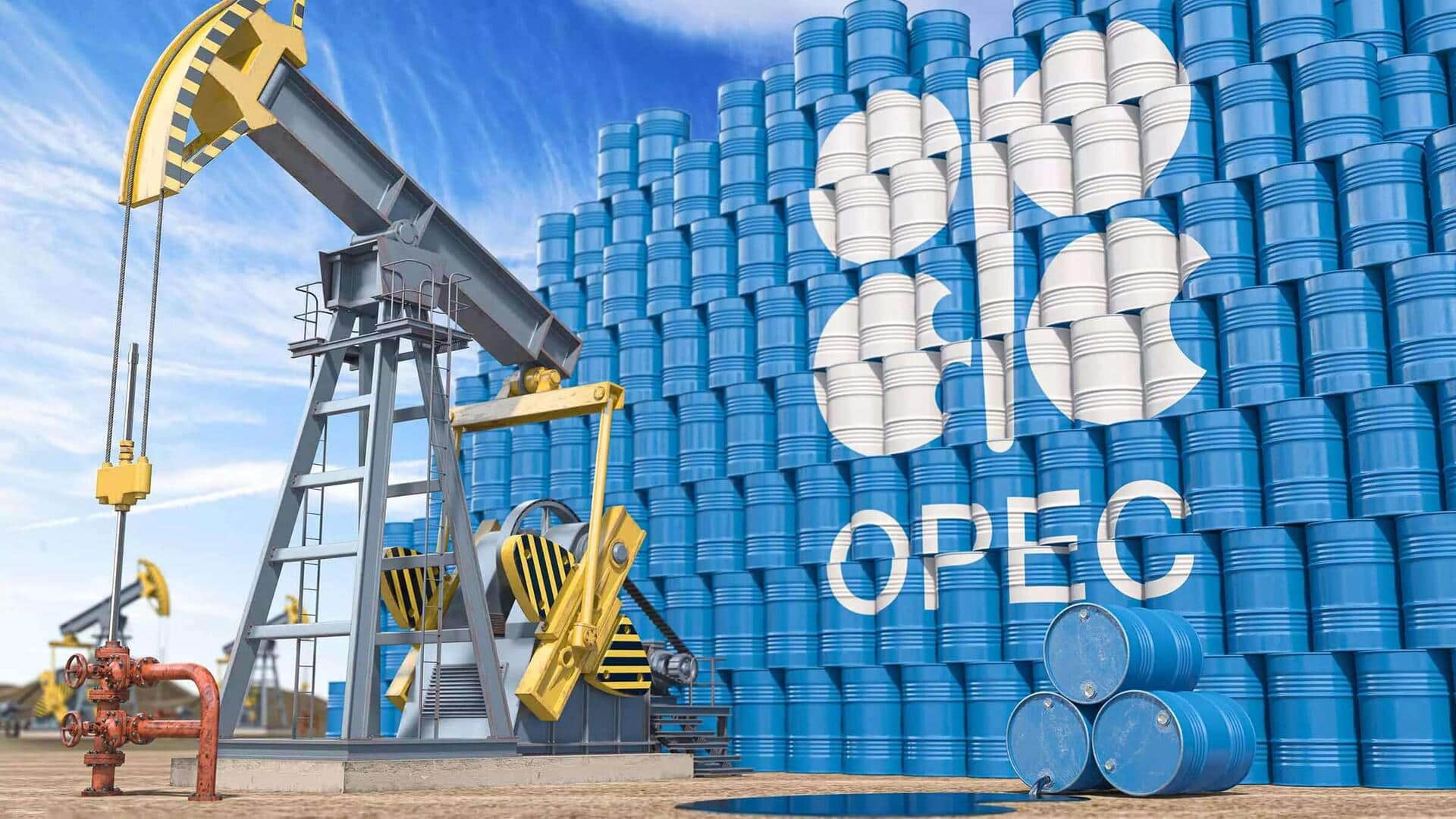
OPEC+ to raise oil output by 137,000 barrels next month
What's the story
The Organization of the Petroleum Exporting Countries and its allies (OPEC+) have agreed in principle to ramp up oil production next month. Key members of the alliance said they expect to approve an increase of some 137,000 barrels during a video call on Sunday, according to Reuters. The move is part of a broader strategy by the Saudi Arabia and Russia-led group to regain market share rather than defend prices.
Production reversal
Proposed increase marks beginning of reversal of cuts
The proposed increase in October would mark the beginning of a reversal of 1.66 million barrels per day of cuts that were originally meant to last until December 2026. Some delegates have said that talks are still ongoing on this matter. This latest move by OPEC+ comes after it surprised oil markets in recent months by reinstating 2.2 million barrels of halted production a year ahead of schedule, despite expectations of an impending surplus.
Market impact
Crude prices have fallen 12% this year
The latest increase would cement a dramatic pivot by OPEC+ from its previous strategy. Crude prices have fallen 12% this year, owing to higher supply from OPEC+ nations and elsewhere, as well as US President Donald Trump's trade war affecting demand. However, the market has remained surprisingly resilient to the alliance's strategy shift, giving Saudi Arabia and its allies more confidence to return even more barrels.
Geopolitical implications
Ramp-up in production likely to please Trump
The ramp-up in production is likely to please Trump, who has repeatedly called for lower oil prices to curb inflation and pressure Russia over its war on Ukraine. Saudi Arabia's Crown Prince Mohammed bin Salman is scheduled to visit Washington in November for talks with the US president. If OPEC+ continues with this plan, it could reverse the full 1.66 million barrels within a year.
Market pressure
Decision highlights tension that's been plaguing oil markets for months
The decision to start unwinding its next layer of cuts also highlights a tension that's been plaguing oil markets for months: forecasters are increasingly warning of an impending supply surplus, yet markets have remained relatively tight over the summer. This move will put more pressure on member nations that depend on higher prices, especially those that can't increase production.